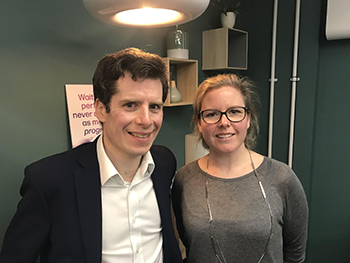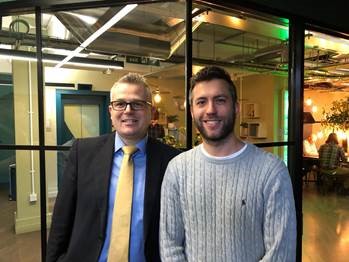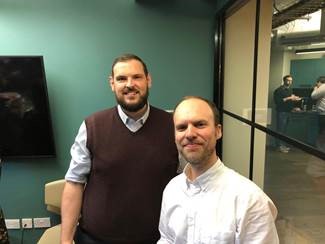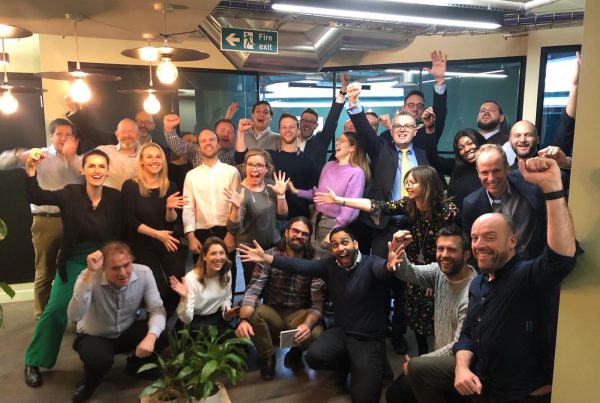
As part of our ongoing series of stories spotlighting the inspirational start-ups that make up the third billion journey project cohort, we meet a company hoping to usher in a ticketing revolution.
Shared mobility is without doubt one of the most significant movements in transport, both publicly and privately.
Companies like Uber – which generated revenues of $11.27 billion in 2018 – have thoroughly disrupted conventional thinking around vehicle use and ownership, as well as mobility more broadly. And yet the Uber phenomenon might just be part of something much, much bigger. Because however synonymous with urban life the likes of Uber and Lyft have become, ridesharing is but one example of shared mobility. Taking a holistic view of the entire spectrum of what shared mobility encompasses – and considering its potential as a singular, interconnected whole – offers a monumental opportunity.
That exact opportunity is what motivates UK tech start-up Esoterix, which uses data, modeling, simulation, mathematical analysis and network optimisation theory to help transport providers improve and refine their services. That process often involves unearthing unmet demand for shared mobility, while providing APIs and white-label apps to operators.
It was with all that in mind that Esoterix joined the Billion Journey Project, which saw it partnered with train operator Southeastern. Southeastern has long looked at ways to serve the modern commuter with flexible products that better fit their travelling needs. It is equally keen to understand how to improve passenger comfort and experience by rewarding the use of less congested trains. This could also help ease the spikes in demand that put substantial pressure on both travellers and the rail infrastructure itself. By considering the science of human behaviour, and by digging deep into available data, Esoterix is looking at how to create a win-win for both comfort and value of rail commuting in the future.
“What we’re doing in collaboration with Southeastern is to develop an experiment, really, in which we test how people will travel when what they pay is more aligned to what they choose,” explains Esoterix CMO and former engineer Liz Davidson. “That’s important because the best value tickets often don’t work for people who job-share or work from home occasionally. And season ticket holders have carte blanche access to all trains. Therefore, they have no incentive to use the less busy trains, other than their own discomfort. The trial will test how fairer pricing can help address that.
“We’re looking at a monthly subscription, but one which matches the flexibility of the modern commuter” Davidson continues. “Within the model, next month’s travel could be a bit cheaper if you chose to use off-peak trains, and so on. So this is partly a behavior experiment, taking lots of literature and applying it in a new way to understand how we can develop this ‘Flex’ ticket type.”
As such Esoterix has used the Billion Journey Project to immerse itself in Southeastern’s distinct needs, allowing the start-up to augment its existing technologies with new bespoke elements built from scratch for the operator.
We’re really excited to be working with a start-up like Esoterix,” enthused John Backway, head of retail at Southeastern. “The insight they can provide on how to inspire behavioural change, with a goal to provide personalised ticketing for each customer can potentially revolutionise the customer experience. We are always listening to our customers who frequently give us feedback on flexible travel, and innovators like Esoterix have the potential to deliver fares reform in a unique and bespoke way.”
Ultimately, by the time the next Billion Journey Project demo day comes on March 26th, Esoterix plans to roll out a soft launch of its new ticketing model for passengers travelling between Ebbsfleet International and St Pancras International stations. Equally, the team is looking to be ready to demonstrate how behavioral science and data mining provide new insights that can be used to serve both individual passengers and rail operators. That is something that could go on to serve not just Southeastern and Go-Ahead Group, but the travelling public across the world.



